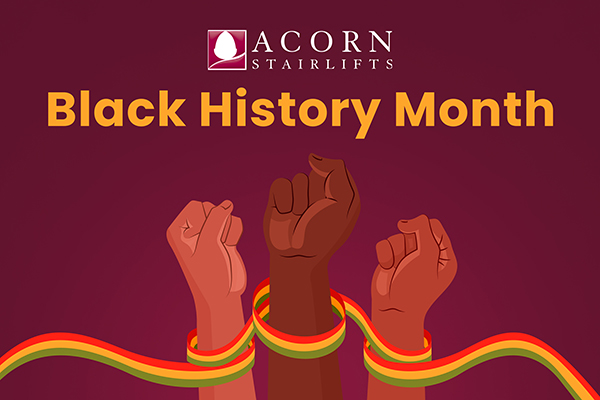They’ve been beaten down. Degraded. Lynched. Spit on. Cursed at. Told to be silent and compliant.
Yet, here they stand—Loud, proud, resilient, and strong. Ready to overcome any obstacle that would dare stand in their way. Ready to right any wrong and fight for what’s right.
It’s time to pay tribute to the legacy of the people who have made our country what it is today—The Black Community.
This Black History Month, take the opportunity to learn more about the rich history behind the month, as well as the contributions that countless black men and women have made not only to our country, but to human civilization as a whole.
What is Black History Month?
Black History Month is a time in which we honor and recognize the achievements, contributions, and impact that African Americans have made on U.S. history.
During this month, we are encouraged to celebrate, reflect back on, and learn more about influential African American figures in history, as well as the indispensable role that African Americans have played in shaping the culture and society that we live in today.
When is Black History Month?
Black history month is celebrated during the month of February.
Why is Black History Month in February?
Carter G. Woodson selected the month of February for these reasons: tradition and reform.
This was already the month in which the Black community and other Republicans celebrated President Abraham Lincoln’s birthday on February 12 since his assassination in 1865. Black communities across the country also had been celebrating Fredrick Douglass’ birthday on February 14 since the 1890s.
Woodson used these pre-existing celebrations to build upon the traditional days that already commemorated black history. His intentions were to encourage others to extend their knowledge of black history, rather than creating a new tradition. He believed that this would increase his chance for success.
Furthermore, Woodson’s objective wasn’t just to build on tradition. He wanted to reform the celebration from a study of just two influential men to the study of the entire race. He believed that the black community should focus on and honor the countless black men and women who had contributed to the advance of human civilization as a whole.
His vision came to fruition, as this is how we celebrate Black History Month today.
What is the Theme for Black History Month 2024?
Every year since 1976, the president has endorsed a specific theme for Black History Month.
This year’s theme is "African Americans and the Arts" and revolves around “highlighting the 'art of resistance' and the artists who used their crafts to uplift the race, speak truth to power and inspire a nation."
What are the Origins of Black History Month?
The origins of Black History Month go all the way back to 1915 in the city of Chicago.
A graduate from the University of Chicago, Carter G. Woodson traveled back to Chicago from Washington, D.C, to join in an Illinois-sponsored celebration of the 50th anniversary of emancipation.
Thousands of African Americans from all over the country traveled to Chicago to see exhibits that highlighted the progress of their people since the destruction of slavery. Having earned a doctorate from Harvard three years earlier, Woodson decided to join in the celebration and exhibition with an addition of a black history display.
The exhibition was held at the Chicago Coliseum, which has been the site of the 1912 Republican convention. However, despite its massive size and capacity, there was an overflow crowd of an estimated six to twelve thousand people who were still waiting for their turn outside to view the exhibits.
Inspired by the magnitude of the celebration and pride in the accomplishments of their people, in September of that year, Carter G. Woodson, minister Jesse E. Morland, and three others founded the Association for the Study of Negro Life and History (ASNLH).
This organization was dedicated to researching and promoting the achievements made by Black Americans, as well as people of African descent.
In 1926, ASNLH sponsored a national Negro History Week, which quickly gained popularity, inspiring communities and schools to celebrate their history.
Eventually, within the next couple of decades, many city mayors across the country began to issue yearly proclamations that recognized “Negro History Week.”
“By the late 1960s, thanks in part to the civil rights movement and a growing awareness of Black identity, ‘Negro History Week’ had evolved into Black History Month on many college campuses.”
Black History Month was officially recognized by President Gerald Ford in 1976. The president encouraged the nation to “seize the opportunity to honor the too-often neglected accomplishments of Black Americans in every area of endeavor throughout our history.”
Today, the organization that founded Black History Month still exists. However, it is now known as the Association for the Study of African American Life and History (ASALH).
Learn More Facts About Black History Here
Want to learn more about the rich history of the black community? You can continue to expand your knowledge of black history with the following resources:
https://www.history.com/topics/black-history/black-history-facts
https://www.today.com/parents/11-surprising-black-history-facts-teach-your-kids-today-t208731
https://www.oprahdaily.com/life/a35181062/black-history-facts/
https://www.history.com/topics/black-history
https://www.archives.gov/news/topics/african-american-history
https://parade.com/1329858/shameikarhymes/black-history-facts/
https://www.nsvrc.org/blogs/many-ways-learn-black-history

